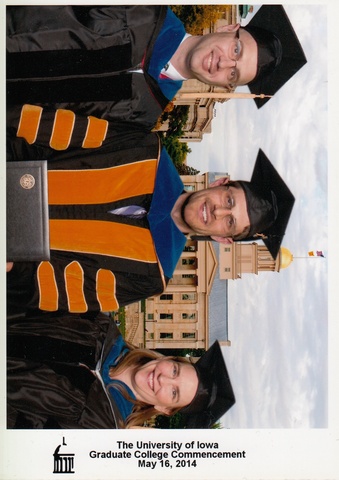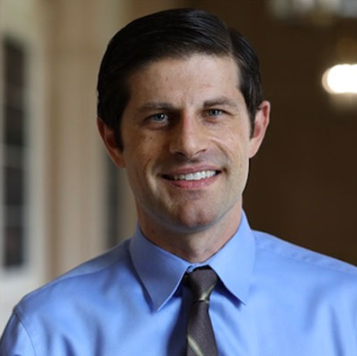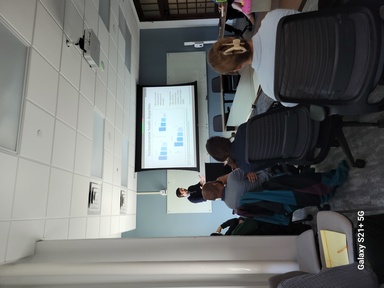
Earning the highest degree a university offers is hard. Students working on their PhD degrees often speak of it in terms of “surviving” the program. And, if surviving a PhD program is hard, thriving in it to craft a promising career can seem impossible. The goal is to develop independent research that advances knowledge in the field, all while working as a teaching or research assistant. Students may ask themselves how they can come up with an important research topic, read hundreds of seemingly unreadable research articles, and then find time to do painstaking research after grading all those student papers.
Matthew Andersson is an ideal person to show us how to meet this challenge. He earned a PhD from our department in 2014 and is now an associate professor at Baylor University, where he has become a prominent sociologist studying health and wellbeing. In recognition of his achievements, Matt was invited to give this year’s Rees Lecture, which honors distinguished scholars and practitioners who have been associated with the University of Iowa.
Matt says that he decided to be a social scientist early on. Then he decided on sociology because the field is broad and flexible. Sociologists sometimes joke that they can study anything they want and call it sociology. “I chose Iowa because the department accepts only a few students each year and works hard to help all of them succeed,” he says. “It has a strong reputation, funding support, and the culture of Iowa City helps too.”
Two aspects of earning a PhD were most challenging for Matt. First was the dreaded “Comps” or comprehensive exams. Multiple, long, hard tests of every aspect of knowledge in a field. Studying for months without any way of knowing if it would end in success. And then there is submitting a paper for publication and being asked for extensive revisions that take months more work only to have the paper rejected by a scientific journal. Who wouldn’t think about quitting? But he grew to enjoy the hard work and intellectual solitude that produces successful research. Eventually. And then there is the overwhelming joy of having that first article accepted for publication.

Research opportunities to work with professors in the department were instrumental in launching his successful career. Professor Jennifer Glanville taught him longitudinal research methods and how to use large data sets to study social effects over time. Professor Freda Lynn taught him how to code and analyze social networks. Professor Jennifer Glass (now at the University of Texas) involved him in a cross-national study of parenthood and happiness. He worked with Professors Mike Sauder and Bodi Vasi to analyze the text of published articles to develop their sociological theories. Working with Professor Sarah Harkness on illness beliefs led to published articles. He continues to work with Professor Steven Hitlin on the sociological understanding of dignity. Their book on the science of dignity was published in 2023. (See the article about the book in this issue of the Newsletter.) We can safely conclude that Matt is so successful because he worked so hard with so many people on a wide variety of academic projects.

He offers a laundry list of simple rules to help students succeed in a PhD program. Have a work routine that applies to most days. Work consistently and take small breaks even when you feel like you don’t have time for them. If you are going to procrastinate, then procrastinate skillfully. Be flexible and unassuming whenever you can. It takes time and patience to develop expertise and learn to recognize expertise. So, absorb whatever you can from interacting with faculty and their published works. Try to say, yes, even if you are only a little interested. That leads to unexpected opportunities. Set limits on how deeply you’ll let yourself be consumed by any one project. Keep in touch with who you are. Pursue joyful activities while you are a graduate student. “For me, I took walks every day and spent time around people and trees,” he says.
So, there you have it. It is possible to thrive in the sociology PhD program at University of Iowa, just follow Matt Andersson.